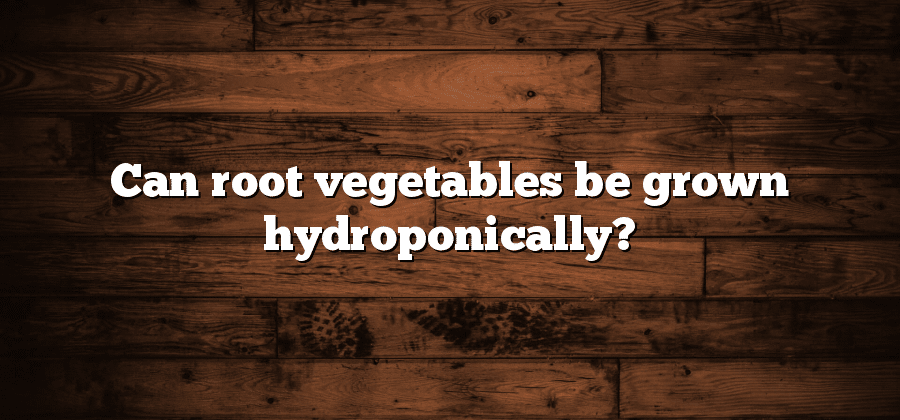Benefits of Hydroponic Growing
Hydroponic growing, the practice of cultivating plants without soil, offers numerous benefits that are hard to ignore. One significant advantage is the ability to grow plants in any environment, regardless of soil conditions. With hydroponics, plants can be cultivated in urban areas, on rocky terrains, or even in arid regions, where traditional farming methods may not be feasible. This creates opportunities for individuals and communities to have access to fresh produce irrespective of their geographical location.
In addition to its adaptable nature, hydroponic growing also enables growers to have greater control over the nutrients and water supply that plants receive. By providing an optimized growing environment, plants can reach their full potential in terms of growth rate, yield, and nutrient content. The precise management of nutrients and water also eliminates the need for pesticides, as the plants are less susceptible to pests and diseases. This not only promotes healthier produce but also reduces the environmental impact associated with traditional farming methods.
Challenges of Hydroponic Root Vegetable Growing
Hydroponic root vegetable growing presents a set of unique challenges that growers must navigate in order to achieve successful results. One of the main challenges is providing the right balance of nutrients to the plants. Unlike traditional soil-based cultivation, hydroponic systems rely on nutrient solutions to deliver essential elements directly to the plant’s roots. However, ensuring that the plants receive the correct amount and proportion of nutrients can be a delicate task, requiring careful monitoring and adjustment.
Another challenge faced in hydroponic root vegetable growing is maintaining proper oxygen levels in the root zone. Unlike soil, which naturally contains air pockets for root respiration, hydroponic systems rely on the delivery of oxygen through water or air pumps. The roots of root vegetables, like carrots or beets, require a steady supply of oxygen to thrive. Without adequate oxygenation, the roots can become oxygen-deprived, leading to root rot and other diseases. Therefore, growers must implement measures to ensure that oxygen levels are consistently monitored and maintained within the hydroponic system.
Best Hydroponic Systems for Root Vegetables
When it comes to growing root vegetables using hydroponic systems, it’s important to choose the best system that will provide optimal conditions for their growth and development. One of the top choices for root vegetable hydroponic systems is the Nutrient Film Technique (NFT). This system allows for a constant flow of nutrient-rich water to pass over the plant roots, ensuring they have access to all the necessary nutrients. NFT systems are particularly suitable for root vegetables such as carrots and radishes, as they provide the ideal balance of moisture and oxygen needed for their root development.
Another popular hydroponic system for growing root vegetables is the Deep Water Culture (DWC) system. In this system, the plant roots are suspended in nutrient-rich water that is continuously aerated. This allows the roots to uptake both nutrients and oxygen efficiently, promoting healthy root growth. DWC systems are ideal for growing root vegetables with larger root systems, such as beets and turnips. Additionally, the simplicity of this system makes it suitable for beginners in hydroponic gardening.
Suitable Root Vegetables for Hydroponic Growing
Root vegetables are a great option for hydroponic growing due to their ability to thrive in nutrient-rich water solutions. Many varieties of root vegetables, such as carrots, radishes, and beets, can be successfully cultivated using hydroponic systems. These vegetables have robust root systems that can easily absorb the necessary nutrients from the water, resulting in healthy and bountiful harvests.
Carrots, known for their vibrant orange color and sweet taste, are particularly well-suited for hydroponic growing. Varieties like Nantes and Paris Market are popular choices among hydroponic enthusiasts. Radishes, on the other hand, are known for their quick growth and peppery crunch. With their short growing cycle, they are perfect for those who crave a fast harvest. Beets, with their rich color and earthy flavor, are also excellent candidates for hydroponic cultivation. Varieties such as Detroit Dark Red and Bull’s Blood thrive in hydroponic systems, producing tender and flavorful roots.
Nutrient Requirements for Hydroponic Root Vegetables
Hydroponic growing offers a controlled and efficient environment for cultivating root vegetables. However, to ensure optimal growth and maximum yields, it is crucial to meet the nutrient requirements of these crops. Root vegetables require a balanced combination of essential elements to thrive in a hydroponic system.
One essential nutrient for root vegetables is nitrogen. Nitrogen plays a vital role in promoting overall plant growth and development, particularly in root formation. It helps stimulate leaf and shoot growth, enabling the plant to absorb more light energy for photosynthesis. Additionally, it supports the synthesis of proteins and enzymes, necessary for various metabolic processes within the plant. To provide sufficient nitrogen levels, growers can opt for fertilizers with a high nitrogen content or use organic sources such as fish emulsion or compost tea. Regular monitoring of nitrogen levels is essential to prevent nutrient deficiencies or toxicities that may hinder root vegetable growth.
Another important nutrient for hydroponic root vegetables is phosphorus. Phosphorus aids in root development, nutrient uptake, and energy transfer within the plant. It is crucial during the early stages of growth when root systems are being established. Adequate phosphorus levels encourage strong and healthy root growth, ensuring efficient water and nutrient absorption. Growers can boost phosphorus levels in the hydroponic system by using phosphorus-rich fertilizers or supplementing with phosphoric acid. However, it is crucial to maintain an optimal balance, as excessive phosphorus can lead to nutrient imbalances and hinder overall plant growth.
Meeting the nutrient requirements of hydroponic root vegetables is essential for successful cultivation. In addition to nitrogen and phosphorus, these crops also require a range of other essential elements such as potassium, calcium, magnesium, and micronutrients like iron, manganese, and zinc. By providing a well-balanced nutrient solution tailored to the specific needs of root vegetables, growers can ensure healthy growth, high yields, and a bountiful harvest.






